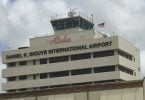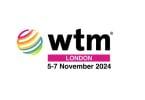Mumbai / New Delhi – Worried about the financial condition of loss-making airlines in India, commercial banks are asking cash-strapped carriers to pledge future ticket sales, company shares and aircraft as collateral before approving loans.
Almost all domestic carriers are in the process of raising working capital after the Centre eased on Wednesday the immediate financial concerns at the firms by allowing them to square up in six equal instalments dues of Rs2,962 crore owed to state-run oil firms, with no interest levied.
Losses at the airlines are expected to touch $2 billion (Rs9,961.9 crore at the current exchange rate) this fiscal, double the amount they lost in fiscal 2008.
Kingfisher Airlines Ltd chairman Vijay Mallya told the inter-ministerial group, or IMG, that met on Wednesday that “banks are refusing to give letters of credit even as the airlines are pledging securities,” said a government official who attended the meeting and did not wish to be named.
“The IMG is of the view that the finance ministry shall organize an interface between the airlines and the banks to ease the situation,” the official added.Airline firms typically guarantee payments on purchases of items such as jet fuel through bank guarantees, or letters of credit.
The IMG meeting was attended by oil minister Murli Deora, aviation minister Praful Patel, senior officials of both ministries and airline executives from India’s three top airlines—Jet Airways (India) Ltd, Kingfisher Airlines and government-owned National Aviation Co. of India Ltd, or Nacil, that runs Air India. The three control some 70% share of the air passenger market and account for most of the dues owed to state-run oil firms.
Nacil, Jet and Kingfisher owe Rs886 crore, Rs1,057 crore and Rs983 crore, respectively, to oil firms such as Indian Oil Corp. Ltd, Hindustan Petroleum Corp. Ltd and Bharat Petroleum Corp. Ltd. Of this, payment of Rs2,131 crore is overdue. Oil firms together expect losses of Rs1.4 trillion this fiscal over sales of petroleum products such as diesel, petrol and cooking gas at government-mandated prices that are below cost.
SpiceJet Ltd, InterGlobe Aviation Pvt. Ltd-run IndiGo, Paramount Airways Pvt. Ltd and GoAirways India Pvt. Ltd-run GoAir did not attend Wednesday’s meeting because they don’t owe oil firms any money against fuel purchases or because such dues are small.
“Raising money from banks in these turbulent times is next to impossible. Significantly, airlines would need low-cost funds at least for next one year to tide over the current situation,” said a Kingfisher Airlines executive who didn’t want to be named. “Airlines are not in a position to command an attractive interest rate since banks are also in deep trouble. Banks are also asking for collateral which airlines can’t oblige. They are also asking for shares of listed companies.”
Some banks are even turning down proposals of working capital and are imposing stringent conditions including asking ticket sales and planes to be put up as collateral, said another airline executive who did not wish himself or his employer to be identified. He declined to name the banks.
SpiceJet, Jet Airways and Kingfisher Airlines are the only listed airlines in the country.
A senior executive with a public sector bank said while banks were willing to extend loans to airlines, “we will be giving funds on our terms”.
“Airlines will have to pledge aircraft against loans. They should also try to bring in more equity to overcome this situation,” added the banker, who requested anonymity.
In an interview with Mint last week, the head of the country’s largest lender, State Bank of India, sought to defend the lenders’ attitude.
“You should not expect my bank to go belly up by giving loans to unviable businesses,” chairman O.P. Bhatt said. “The airlines industry is going through a bad patch. We are asking for the right kind of collaterals. For instance, we can securitize their receivables. We can have a charge on their aircraft. We may also ask for pledging of the shares of such companies.”
An expert said it was not unusual for banks to seek new kinds of securities. “It is natural and prudent for financial institutions not to lend to a sector that is making huge losses and turned as defaulters to oil companies and airport operators,” said Hemant Bhattbhatt, senior director, Deloitte Touche Tohmatsu India Pvt. Ltd.






















